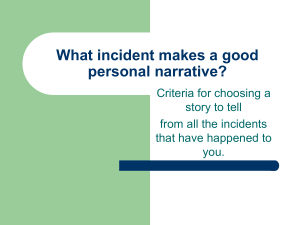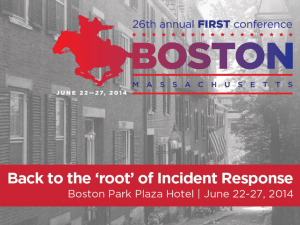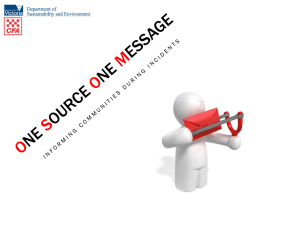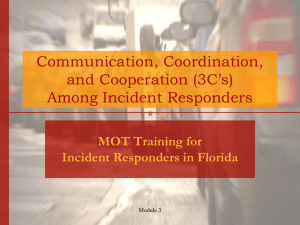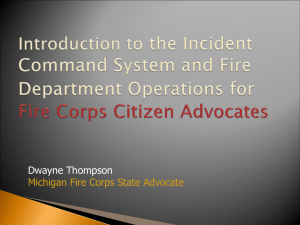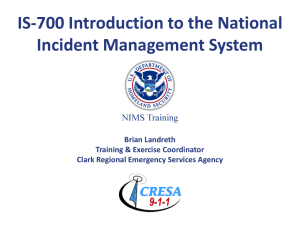Unit 15 Planning and Management of Major Incidents
advertisement
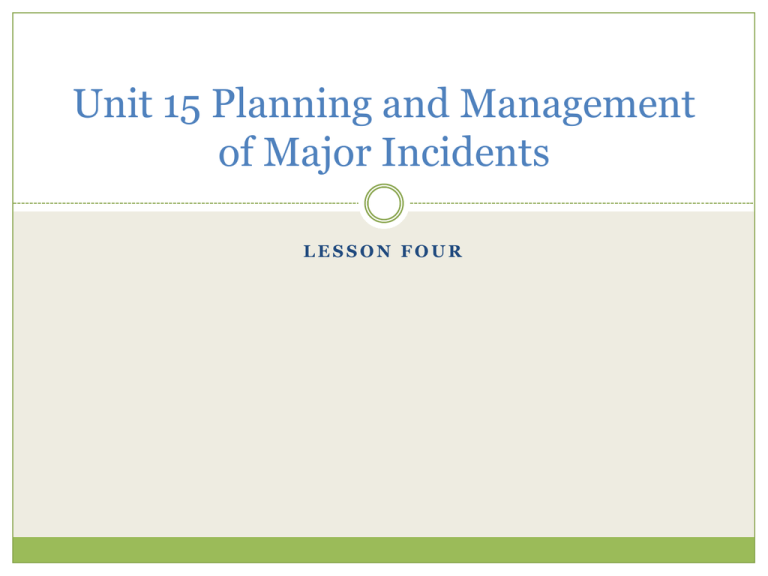
Unit 15 Planning and Management of Major Incidents LESSON FOUR Introduction First we are going to recap what we looked at this morning. So in the short term, who is effected by a Incident and in what ways. This lesson .......... In this lesson we are going to at the wider impacts of a major incident and the long term effects of major incidents. This is your merit criteria: M2 Class discussion: What about 9/11 and indirect effects? Long Term Impacts of a Major Incident Public Enquiries Debriefs of Incidents by Agencies. Attempts to prevent it happening again or reducing risk. -Better Planning -Improved Technology -Better Funding Public Enquiries This happens a great deal after a major incident. It is a public investigation which tries to uncover what happened in a MI. Often held in courts, a government body allows the public can ask questions and look at issues and attempt to make changes to help prevent what happened from being repeated. Public Enquiries Debate Chair Person Heads of the different agencies involved. The Public: Asking the questions Debriefs by agencies After almost any event within a Public service whether it was training or a real life event, those involved within a Major Incident might come together and look at how well they dealt with a incident. Response time? How many people they had, was it enough? Did they have the right equipment? Did everyone know how to deal with a incident? Training may be required? Communications work effectively? Class Activity Split up into groups of four. I will give you a scenario on the board and I want you to think in your groups how you would deal with the incident. Four gunmen have come into York College. They have began shooting and are now on floor 1 near classrooms 129, but unsure. Weapons and casualties are unknown. Come up with a plan and then debrief us after. Prevention In the scenario how would you have prevented this incident from happening or reduced the chance of it happening. Think of different factors, Planning, funding and technology. Prevention The long term effects of a major incident can be trying to prevent the event from happening again. -Better Planning: This involves trying to create better plans in order to prepare everyone for a disaster. If buildings fall down in a earthquake, build them firm and flexible, in order to deal with earthquakes better. http://www.youtube.com/watch?v=tF204Pgf- eo&feature=related Legal Requirement Now Prevention Preventing a Terrorist Attack http://www.youtube.com/watch?v=wMeCna2L4kY Preventing a disease outbreak: Ebola http://www.youtube.com/watch?v=GKIRVgsNd9A Prevention Trying to improve technology. In many major incidents then improvements in technology can help prevent a incident happening again. Better buildings, better medical equipment, better technology to capture terrorists. Thames Barrier: http://www.youtube.com/watch?v=w50r6WJVOPs Prevention Better Funding: To help prevent disasters, governments and businesses need to invest a great deal of money in order to stop events from happening again. The floods in the UK in 2007, the government gave £3.6 billion to councils around the UK to help prevent floods from happening again. Class Activity How could you help to prevent flooding in the UK and reduce its effects on communities? Changes in Legislation

